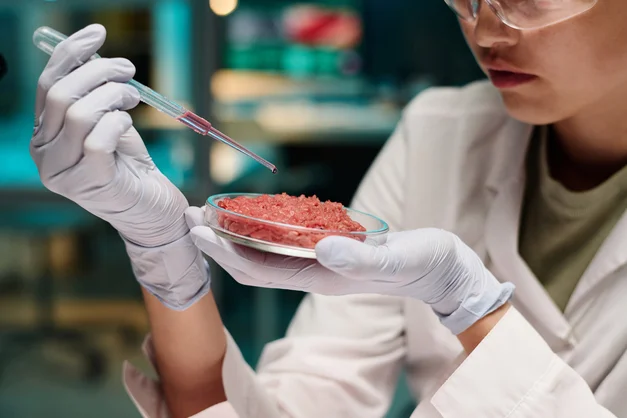In a groundbreaking move, French cultivated meat startup Gourmey has officially submitted an application to EU regulators seeking authorization for its cultivated foie gras. This historic submission marks the first-ever attempt to sell cultivated meat within the European Union, potentially heralding a new era of food innovation in the region.
A Milestone for Food Innovation
Gourmey’s application represents a significant milestone, demonstrating that technological advancements in food production can coexist with and even enhance traditional culinary practices. Cultivated meat offers a sustainable alternative to conventional animal agriculture, addressing pressing concerns related to environmental impact and animal welfare. By producing foie gras through cellular agriculture, Gourmey aims to provide a product that aligns with contemporary ethical standards while retaining the beloved qualities of traditional foie gras.
Global Reach and Regulatory Landscape
In addition to the EU, Gourmey has also submitted regulatory applications in Singapore, Switzerland, the UK, and the United States. This widespread effort underscores the global interest in and potential of cultivated meat. Notably, Singapore was the first country to approve cultivated meat for sale in December 2020, followed by the United States, which authorized two cultivated chicken products in 2023. Similarly, Aleph Farms, another pioneer in the field, submitted applications to Swiss and UK regulators almost exactly a year ago to market their cultivated beef.
Public Support and Regulatory Rigour
Public sentiment in Europe appears favorable toward the introduction of cultivated meat. A YouGov survey involving over 16,000 respondents across 15 European countries revealed that more than half of the participants in 13 countries support the sale of cultivated meat, provided it is deemed safe and nutritious by food regulators. Interestingly, this majority view persisted in Italy and Hungary, where governments have moved to ban cultivated meat.
The EU regulatory process for novel foods, governed by the Novel Foods Regulation, is known for its thoroughness and stringency. The European Commission’s approval is essential for any cultivated meat product to be marketed across the EU’s 27 member states. This process involves a comprehensive evaluation of the product’s safety and nutritional value by the European Food Safety Authority (EFSA), followed by a public consultation phase to consider the social and economic implications.
The Promise of Cultivated Meat
Cultivated meat is produced using advanced cellular agriculture techniques, where animal cells are grown in controlled environments similar to fermentors used in brewing. This method offers substantial environmental benefits compared to traditional meat production. Peer-reviewed research indicates that cultivated meat can reduce greenhouse gas emissions by up to 92%, air pollution by up to 94%, and water usage by up to 66% compared to conventional beef. Additionally, it requires up to 90% less land, potentially freeing up space for more nature-friendly agricultural practices.
By reducing reliance on overseas crops for animal feed and eliminating the need for antibiotics, cultivated meat also contributes to food security and public health. The reduction in antibiotic use is particularly significant in mitigating the risk of antimicrobial resistance, a growing global health concern.
Next Steps
As the European Commission and EFSA embark on their rigorous assessment of Gourmey’s cultivated foie gras, the decision-making process will ensure that the highest standards of safety, nutrition, and socio-economic impact are met. The estimated 18-month evaluation period will involve scientific experts and input from member states to ensure a representative and inclusive decision.
Gourmey’s pioneering submission is a beacon of progress, signaling the potential for cultivated meat to become a staple in the European diet. As the world grapples with environmental and ethical challenges, cultivated meat offers a promising solution, paving the way for a sustainable and humane future in food production.

